
The Project Gutenberg EBook of Another Summer, by Charles J. Gillis
This eBook is for the use of anyone anywhere at no cost and with
almost no restrictions whatsoever. You may copy it, give it away or
re-use it under the terms of the Project Gutenberg License included
with this eBook or online at www.gutenberg.org
Title: Another Summer
The Yellowstone Park and Alaska
Author: Charles J. Gillis
Release Date: September 22, 2012 [EBook #40824]
Language: English
Character set encoding: UTF-8
*** START OF THIS PROJECT GUTENBERG EBOOK ANOTHER SUMMER ***
Produced by Greg Bergquist, Matthew Wheaton and the Online
Distributed Proofreading Team at http://www.pgdp.net (This
file was produced from images generously made available
by The Internet Archive/American Libraries.)

Yellowstone Park and Alaska
Printed for
Private Distribution
Copyright, 1893, by
CHARLES J. GILLIS.
Press of J. J. Little & Co.
Astor Place, New York
The more I think of it, the more I find this conclusion impressed upon me, that the greatest thing a human soul ever does in this world is to see something and tell what it saw in a plain way.—Ruskin.
With the Compliments
of the Author.
In the spring of 1892, a party was made up for a trip to Alaska. The different members thereof were to cross the continent by such routes as they pleased, and meet at Portland, Oregon, on the second of July. This plan was followed, and all the party boarded the steamer Queen at Tacoma, prepared for the journey of a thousand miles up the coast of Alaska.
Some account of this, and also of an excursion to the Yellowstone Park, made on the way westward, is given in the following pages.
| CHAPTER | PAGE | |
| I. | The Start for Alaska, | 11 |
| II. | On the Way to the Yellowstone, | 13 |
| III. | Yellowstone Park, | 16 |
| IV. | The Geysers and Paint Pot, | 18 |
| V. | The Upper Geyser Basin, | 22 |
| VI. | The Grand Canyon, and the Falls of the Yellowstone, | 25 |
| VII. | Down the Columbia River to Portland, | 29 |
| VIII. | Tacoma and Seattle, | 34 |
| IX. | On Board the “Queen” from Tacoma to Victoria, | 37 |
| X. | Alaska, | 41 |
| XI. | The Muir Glacier, | 43 |
| XII. | Sitka, | 46 |
| XIII. | An Accident to the “Queen,” | 49 |
| XIV. | Icy Bay, Treadwell, and Juneau, | 53 |
| XV. | The Return Voyage, and Some Stories told on the Way, | 56 |
| XVI. | On the Canadian Pacific, | 68 |
| XVII. | Banff Springs, | 72 |
| XVIII. | Conclusion. | 74 |
THE YELLOWSTONE PARK AND ALASKA
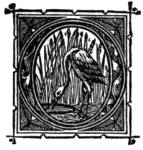 OUR
long trip to Alaska and return, nine thousand miles in all,
commenced on June 17, 1892, at the Grand Central Station, New York.
Arriving at Chicago the next afternoon, we obtained a good view of the
great exposition buildings from our car windows as we passed along the
lake front. Shortly afterward we were dumped down at the wretched
sheds of the Michigan Central Railroad. It rained very heavily, and
ourselves and hand baggage were somewhat wet passing a short distance
to a carriage. We soon crossed the Chicago River to the Northwestern
Depot, boarded the train, which left at 11 p.m., and arrived at the
beautiful modern city of St. Paul at 1 [12]p.m. the next day. The Hotel
Ryan was found to be very comfortable, and everything in and around
the city is bright and cheerful. Great business activity, and immense
and costly buildings are especially noticeable.
OUR
long trip to Alaska and return, nine thousand miles in all,
commenced on June 17, 1892, at the Grand Central Station, New York.
Arriving at Chicago the next afternoon, we obtained a good view of the
great exposition buildings from our car windows as we passed along the
lake front. Shortly afterward we were dumped down at the wretched
sheds of the Michigan Central Railroad. It rained very heavily, and
ourselves and hand baggage were somewhat wet passing a short distance
to a carriage. We soon crossed the Chicago River to the Northwestern
Depot, boarded the train, which left at 11 p.m., and arrived at the
beautiful modern city of St. Paul at 1 [12]p.m. the next day. The Hotel
Ryan was found to be very comfortable, and everything in and around
the city is bright and cheerful. Great business activity, and immense
and costly buildings are especially noticeable.
Running along the streets are great numbers of spacious and elegant cars drawn by cables. We hailed a passing one, got in, and went slowly and carefully through the crowded streets, up and down hills, with great speed and ease, into the country for some miles, passing many elegant private residences, as costly and fine as any to be seen in any city in the world—notably one built and occupied by Mr. Hill, president of the Great Northern Railroad, now about completed to the Pacific Ocean, whose name you hear mentioned often as one of the great railroad magnates of the West. The streets are clean, the sidewalks wide, the front yards of the houses crowded with beautiful plants and flowers, and in all respects we concluded that St. Paul is a most delightful city.
Livingston, Montana, June 22, 1892.
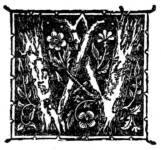 WE
left the city of St. Paul at 4.25 p.m. on the 20th, by the Northern
Pacific Railroad, and arrived here at 8 a.m. this morning. A section
on the sleeping-car had been previously engaged, and we found it and
the dining-room car attached to the train all that could be desired,
so that we thoroughly enjoyed the entire trip. Passing through the Bad
Lands was a wonderful experience. Great mountains of clay or stone, in
all sorts of grotesque shapes and of many colors, constantly attracted
our attention until we reached the Yellowstone River, which was higher
than it had been for many years. Here things began to look serious, as
frequently the dirty and rushing flood came near to the[14] track, and
the rise of a foot or so would have caused a wash-out, and have
stopped our progress; but for many miles before we reached this
station, the engineer moved the train of ten cars very carefully, and
we were only two hours behind time. There has been a bridge burned
beyond this place, and some bad wash-outs are reported by passengers
coming East, who say that they had to travel around six miles on foot,
through a country infested with rattlesnakes, leaving their baggage
behind; but we expect that all will be clear on Monday, when we shall
have been through the park, and will be ready to go on from here West.
WE
left the city of St. Paul at 4.25 p.m. on the 20th, by the Northern
Pacific Railroad, and arrived here at 8 a.m. this morning. A section
on the sleeping-car had been previously engaged, and we found it and
the dining-room car attached to the train all that could be desired,
so that we thoroughly enjoyed the entire trip. Passing through the Bad
Lands was a wonderful experience. Great mountains of clay or stone, in
all sorts of grotesque shapes and of many colors, constantly attracted
our attention until we reached the Yellowstone River, which was higher
than it had been for many years. Here things began to look serious, as
frequently the dirty and rushing flood came near to the[14] track, and
the rise of a foot or so would have caused a wash-out, and have
stopped our progress; but for many miles before we reached this
station, the engineer moved the train of ten cars very carefully, and
we were only two hours behind time. There has been a bridge burned
beyond this place, and some bad wash-outs are reported by passengers
coming East, who say that they had to travel around six miles on foot,
through a country infested with rattlesnakes, leaving their baggage
behind; but we expect that all will be clear on Monday, when we shall
have been through the park, and will be ready to go on from here West.
There was the usual crowd of “all sorts and conditions” of men on the train—young ranchmen, bright eyed, intelligent, and alert, one of them being an English lord, but I did not know this until he left the car at a way station. All had tales to tell of life in these parts, one of which was that the stage running from one of the stations at which we stopped was “held up” three times last week, and the passengers robbed. This town is a new one, with a lot of small wooden houses and stores,[15] but as the hotels did not look very attractive, we took our breakfast on the dining-car attached to a train about to start for Cinnabar, on a branch road, and an excellent meal we had.
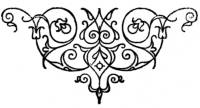
Mammoth Springs Hotel,
Yellowstone National Park, June 23, 1892.
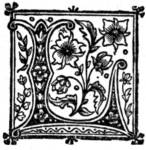 LEAVING
Livingston at 9 a.m., we travelled by rail forty-two miles to
Cinnabar, the entrance to the National Park. We passed along the
valley of the Yellowstone River, now a much swollen, turbulent, and
rushing stream, hemmed in by mountains reaching their lofty heads
thousands of feet high. In one place there had been a land-slide some
hundreds of feet long, which had carried down all the earth and trees
into the valley, leaving the rock bare, and presenting a very rugged
appearance. There were numerous farms and ranches on the route, with
cattle and cultivated fields. The road bed was in good order, the cars
excellent, and the trip exceedingly interesting and enjoyable. At[17]
Cinnabar, we took a stage for eight miles to this hotel. The road is a
very good one, passing over rushing streams and along the bases of
great mountains, amidst magnificent scenery. Beautiful flowers line
the way and are in the fields, while the mountains are partly covered
with snow. We hear that the road to the lake is blocked with snow, and
impassable. This hotel is an excellent one, the food, attendance, and
rooms are good, and for a day we are resting preparatory to commencing
the tour of the park. Here are located the barracks for the United
States soldiers in charge of the reservation, these being now two
hundred mounted men, who act as police, and constantly patrol the
roads, watching for poachers, and generally keeping everything in
order. From the front of the hotel we look upon the hot springs, which
have been throwing out hot water and steam, no doubt for ages, and
have formed a large terraced hill of soda or lime-like material, the
surplus water finding its way, partly through subterranean passages,
to the river.
LEAVING
Livingston at 9 a.m., we travelled by rail forty-two miles to
Cinnabar, the entrance to the National Park. We passed along the
valley of the Yellowstone River, now a much swollen, turbulent, and
rushing stream, hemmed in by mountains reaching their lofty heads
thousands of feet high. In one place there had been a land-slide some
hundreds of feet long, which had carried down all the earth and trees
into the valley, leaving the rock bare, and presenting a very rugged
appearance. There were numerous farms and ranches on the route, with
cattle and cultivated fields. The road bed was in good order, the cars
excellent, and the trip exceedingly interesting and enjoyable. At[17]
Cinnabar, we took a stage for eight miles to this hotel. The road is a
very good one, passing over rushing streams and along the bases of
great mountains, amidst magnificent scenery. Beautiful flowers line
the way and are in the fields, while the mountains are partly covered
with snow. We hear that the road to the lake is blocked with snow, and
impassable. This hotel is an excellent one, the food, attendance, and
rooms are good, and for a day we are resting preparatory to commencing
the tour of the park. Here are located the barracks for the United
States soldiers in charge of the reservation, these being now two
hundred mounted men, who act as police, and constantly patrol the
roads, watching for poachers, and generally keeping everything in
order. From the front of the hotel we look upon the hot springs, which
have been throwing out hot water and steam, no doubt for ages, and
have formed a large terraced hill of soda or lime-like material, the
surplus water finding its way, partly through subterranean passages,
to the river.
Fountain Hotel,
Yellowstone Park, June 23, 1892.
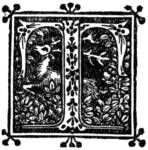 THIS
morning at eight o’clock we left the Mammoth Spring, in a
strongly built and comfortable wagon drawn by four horses, with eight
passengers and a careful driver, and soon commenced to see the wonders
of this remarkable park. The road ran near three lakes, each measuring
a hundred acres or more—one green in color, one blue, and one
yellow—the like of which cannot, I think, be seen anywhere else on
earth. On examination, I found that the water was clear, and that the
pronounced and brilliant colors came from chemical deposits on the
bottom of the lakes. We did not linger long to look at these
remarkable phenomena, but drove on, and were soon passing over a[19] road
made of natural glass, by the side of a great mountain of the same
material. I picked up several pieces of this glass, and found that it
was green in color, and looked like any other glass, while alongside
the road and up the mountain we saw large masses of the same material.
The only conclusion we could arrive at was, that in some prehistoric
time the materials of which glass is composed must have been in
juxtaposition, and were fused into their present form by a volcanic
eruption. It is safe to say that nowhere else on earth is to be found
a roadway made of glass.
THIS
morning at eight o’clock we left the Mammoth Spring, in a
strongly built and comfortable wagon drawn by four horses, with eight
passengers and a careful driver, and soon commenced to see the wonders
of this remarkable park. The road ran near three lakes, each measuring
a hundred acres or more—one green in color, one blue, and one
yellow—the like of which cannot, I think, be seen anywhere else on
earth. On examination, I found that the water was clear, and that the
pronounced and brilliant colors came from chemical deposits on the
bottom of the lakes. We did not linger long to look at these
remarkable phenomena, but drove on, and were soon passing over a[19] road
made of natural glass, by the side of a great mountain of the same
material. I picked up several pieces of this glass, and found that it
was green in color, and looked like any other glass, while alongside
the road and up the mountain we saw large masses of the same material.
The only conclusion we could arrive at was, that in some prehistoric
time the materials of which glass is composed must have been in
juxtaposition, and were fused into their present form by a volcanic
eruption. It is safe to say that nowhere else on earth is to be found
a roadway made of glass.
We reached this hotel at 6 p.m., and saw near by the first of the geysers, spouting hot water fifty feet high. We made our way over a thin crust to see this geyser, so thin that it seemed as if we might break through and disappear forever, reminding me of a former experience, when walking along the edge of a volcano in Japan, a place was pointed out where two guides who had wandered from the path, broke through the crust and were lost. We passed on to examine what I consider the most extraordinary natural phenomenon to be seen on the face of the earth. It is called[20] the Paint Pot, and is a depression of about thirty by forty feet, with walls of hardened clay three or four feet high. In this so-called pot are half a dozen or more cones, much like inverted flower pots, about six inches in diameter at the top, and two or three feet high. From the centres of these there are constantly flowing streams of hot clay, each stream of a different color, varying from pure white to brown. In other parts of the big pot the soft clay was coming slowly up from centres and overflowing, forming figures like flowers, very beautiful to look at. The soldier who escorted us was very polite, but would not permit us to carry away a bit of the clay, though there were tens of thousands of tons lying about. We could see, near by and at a distance, several other geysers, spouting water fifty or more feet high, and we learned from the guide books that there are no less than ten or twelve thousand boiling springs and geysers within the reservation, which is sixty-five miles long by fifty-three wide, containing about three thousand four hundred and seventy-five square miles. We were informed that after sunset a bear came regularly, back of the hotel, to regale[21] himself on the refuse thrown from the kitchen, and I went to see him; but the mosquitoes were very thick, and proved such an intolerable nuisance that I was obliged to go away without getting a look at the beast.
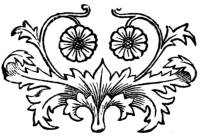
June 24, 1892.
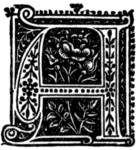 AFTER
a good night’s sleep, we left the hotel at half-past eight this
morning for an excursion to the Upper Geyser Basin, forty miles
distant. The roads were in bad order, very dusty, and the mosquitoes
thick. Geysers and boiling springs were to the right and left,
everywhere. At one place we got out of the wagon, and crossed a bridge
over a small stream to what is called the Devil’s Half Acre. There
were really a dozen or more acres, containing great volumes of steam
and hot water rushing up and around. Many little streams ran toward a
big basin, some of them yellow, some green, and some blue, but on
examination I found that the water itself was clear. The mud or clay
which formed the bed of the streams, or was being carried[23] along in
the current, was colored. We thought the Devil’s Half Acre a dangerous
as well as a disagreeable place, and, recrossing the little stream,
continued on our way, arriving at the hotel at the Upper Geyser Basin
in four hours. We had just arrived when we were informed that the
famous Old Faithful Geyser, which has spouted for many years every
sixty-five minutes, would go off in a short time. It is situated a few
rods from the hotel, and as we drew near, it commenced to spout up an
immense column of water and steam one hundred and fifty feet or so in
height. Then, in about five minutes, it subsided into a hole in the
ground. We could hear the roar of the steam and water underneath, the
commotion shaking the ground.
AFTER
a good night’s sleep, we left the hotel at half-past eight this
morning for an excursion to the Upper Geyser Basin, forty miles
distant. The roads were in bad order, very dusty, and the mosquitoes
thick. Geysers and boiling springs were to the right and left,
everywhere. At one place we got out of the wagon, and crossed a bridge
over a small stream to what is called the Devil’s Half Acre. There
were really a dozen or more acres, containing great volumes of steam
and hot water rushing up and around. Many little streams ran toward a
big basin, some of them yellow, some green, and some blue, but on
examination I found that the water itself was clear. The mud or clay
which formed the bed of the streams, or was being carried[23] along in
the current, was colored. We thought the Devil’s Half Acre a dangerous
as well as a disagreeable place, and, recrossing the little stream,
continued on our way, arriving at the hotel at the Upper Geyser Basin
in four hours. We had just arrived when we were informed that the
famous Old Faithful Geyser, which has spouted for many years every
sixty-five minutes, would go off in a short time. It is situated a few
rods from the hotel, and as we drew near, it commenced to spout up an
immense column of water and steam one hundred and fifty feet or so in
height. Then, in about five minutes, it subsided into a hole in the
ground. We could hear the roar of the steam and water underneath, the
commotion shaking the ground.
Soon after this exhibition, another geyser, called the Bee Hive, situated near the hotel, spouted, and made a splendid display. I think we saw in this basin as many as twenty large spouting geysers, and hundreds of boiling springs, many of them of surprising beauty. One, which attracted my attention particularly, was a slowly boiling spring which threw up colored clay, and looked exactly like a large sponge.[24] This was about three feet long, two feet wide, and as many high.
Driving along the road, we frequently saw signs put up by the Government: “Do not drive on here,” and “Danger”; so one is impressed with the idea that some day the tremendous volcanic power underlying this entire valley may burst out and make one vast crater of lava, mud, water, and steam.
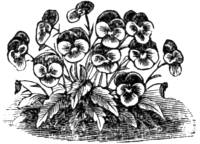
Grand Canyon Hotel, June 26, 1892.
 WE
left the Upper Geyser Basin at half-past eight yesterday morning,
stopped for lunch at Norris’s at noon, and, branching off, arrived
here at 3.30 p.m. The road was on the banks of or near the Gibbon
River for many miles, and was very rough. Twice we forded the river,
and once the passengers were obliged to leave the wagon and remove a
fallen tree from the way. At another place, a tree a foot in diameter
had fallen across the road; the party all got out, and the driver had
to jump the wagon over the obstruction, at the risk of breaking the
vehicle. The road from Norris’s was in good repair, and from it we had
a fine view of the great Yellowstone Falls,[26] and then drove on to find
comfortable accommodations at this hotel, the views from which are
very magnificent. Mrs. Marble and I, accompanied by a guide, and Mr.
and Mrs. Hunter, of Canada, took a walk toward the Grand Canyon, about
half a mile off. Crossing some fields, we entered the pine woods. The
whole park has been repeatedly burnt over, and there is everywhere an
immense number of prostrate pine-trees, some of which are very large,
and appeared, when we saw them, to have been lying on the ground many
years. In this vicinity, however, there is quite a forest of new
growth, all about the same size, from six to ten inches in diameter,
and ten to a dozen feet apart, making a very pretty park. Here we came
suddenly upon a big black bear lying down; he got up, took a look at
us, and then in a leisurely way walked off. It was a fine specimen,
weighing, we judged, about two hundred and fifty pounds, with long,
clean black hair. Mr. Hunter ran on toward the animal, but we called
to him to come back, and the bear, turning his head, gave us another
look, and disappeared in the forest. We walked along to the banks of
the rushing and roaring[27] river, ascended a high cliff, and looked down
upon the great falls and the tremendous canyon, the walls of which are
several hundred feet high, colored bright green in some places, and in
others red, yellow, or violet.
WE
left the Upper Geyser Basin at half-past eight yesterday morning,
stopped for lunch at Norris’s at noon, and, branching off, arrived
here at 3.30 p.m. The road was on the banks of or near the Gibbon
River for many miles, and was very rough. Twice we forded the river,
and once the passengers were obliged to leave the wagon and remove a
fallen tree from the way. At another place, a tree a foot in diameter
had fallen across the road; the party all got out, and the driver had
to jump the wagon over the obstruction, at the risk of breaking the
vehicle. The road from Norris’s was in good repair, and from it we had
a fine view of the great Yellowstone Falls,[26] and then drove on to find
comfortable accommodations at this hotel, the views from which are
very magnificent. Mrs. Marble and I, accompanied by a guide, and Mr.
and Mrs. Hunter, of Canada, took a walk toward the Grand Canyon, about
half a mile off. Crossing some fields, we entered the pine woods. The
whole park has been repeatedly burnt over, and there is everywhere an
immense number of prostrate pine-trees, some of which are very large,
and appeared, when we saw them, to have been lying on the ground many
years. In this vicinity, however, there is quite a forest of new
growth, all about the same size, from six to ten inches in diameter,
and ten to a dozen feet apart, making a very pretty park. Here we came
suddenly upon a big black bear lying down; he got up, took a look at
us, and then in a leisurely way walked off. It was a fine specimen,
weighing, we judged, about two hundred and fifty pounds, with long,
clean black hair. Mr. Hunter ran on toward the animal, but we called
to him to come back, and the bear, turning his head, gave us another
look, and disappeared in the forest. We walked along to the banks of
the rushing and roaring[27] river, ascended a high cliff, and looked down
upon the great falls and the tremendous canyon, the walls of which are
several hundred feet high, colored bright green in some places, and in
others red, yellow, or violet.
The whole scene was magnificent, grand, and gloomy. In the middle of the river, near where we stood, was a column of rock some hundreds of feet high, apparently ten yards in diameter at the bottom, and just large enough at the top for an eagle’s nest. One had been built there, and we saw the young eagles stretching their necks, and opening their mouths, as all kinds of young ones do when hungry. The parents were soaring about, and evidently keeping a watchful eye upon us and their progeny, but the little ones were safe, as nothing but a ball from a rifle could reach that nest. From this point we had another fine view of the Falls of the Yellowstone, both lower and upper. The upper fall has been measured, and found to be one hundred and twelve feet high and eighty feet wide.
The wild animals in the reservation are carefully protected by the custodians, no one being allowed to use a gun, and consequently[28] they have become comparatively tame, and have increased in numbers. Passing along the roads, we saw on one occasion two deer, and at other times an elk and an antelope. The superintendent, in his official report, says that there are in the park four hundred head of buffalo, a few moose, numerous elk, estimated at twenty thousand, and large numbers of bears, which latter are sometimes troublesome. A herd of twenty or thirty elk was seen near this hotel on the morning before we arrived.

Portland, Oregon, July 1, 1892.
 AFTER
spending six days in the Yellowstone Park, which would have been
far more comfortable if there had been less dust, fewer mosquitoes,
and better roads, we again returned to Livingston, and took the train
coming from the East at 8.15 p.m. All the next day and night and the
day following we were passing through mountain scenery of wonderful
beauty and grandeur, until at 11 p.m. we were landed at Pasco
Junction, there being a cross-country railroad from that point to the
Union Pacific, on the banks of the Columbia, where we wanted to go.
There was a large station at Pasco, but not a porter nor a carriage to
be seen. Many drinking places were open, and I interviewed several of
the patriots[30] who were lounging about in their shirt sleeves—for the
thermometer registered one hundred degrees—and they pointed out the
way to Cook’s Hotel, about a quarter of a mile off. Finally a porter
came to our assistance and escorted us to the hotel, which was about
as poor a one as could well be—close, hot, and uncomfortable. The
beds were as hot as if there was a fire under them, and we, of course,
slept but little. In the morning, after looking at a bad breakfast,
which did not tempt our appetites, we got into the caboose of a
freight train, and a very rough trip of two hours brought us to
Wallula Junction, where the thermometer stood at one hundred degrees
in the shade. Here we changed cars, and after two hours’ more riding,
reached the Union Pacific Railroad, where we once more enjoyed the
luxury of seats in a Pullman. There was no dining-room car attached to
this train, but it stopped at a station for half an hour, and we were
supplied with an excellent dinner. The polite and kind conductor told
us not to hurry, that he would not start until we had all the dinner
we wanted. We were about eight hours running on or near the southern
banks of the[31] Columbia River. The water was very high, and often ran
swiftly over rough rocks in the bed of the stream, and around the
bends with great force. The river appeared much wider than the Hudson,
about the same width as the Danube at Vienna. The great rivers of
Europe, Asia, Africa, and America all have their attractive
peculiarities, and I often recall my remembrances of the St. Lawrence,
Hudson, Mississippi, Rhine, Elbe, Danube, Seine, Nile, and Ganges with
the greatest pleasure and satisfaction, and am thankful that I have
been permitted to see them; but I must acknowledge that the Columbia,
in beauty and grandeur, far surpasses them all. For long distances,
you look out upon the wide and rushing water, and up to the lofty
mountains which border the banks and far beyond, some covered with
snow, and as picturesque and beautiful as anything an artist could
dream of.
AFTER
spending six days in the Yellowstone Park, which would have been
far more comfortable if there had been less dust, fewer mosquitoes,
and better roads, we again returned to Livingston, and took the train
coming from the East at 8.15 p.m. All the next day and night and the
day following we were passing through mountain scenery of wonderful
beauty and grandeur, until at 11 p.m. we were landed at Pasco
Junction, there being a cross-country railroad from that point to the
Union Pacific, on the banks of the Columbia, where we wanted to go.
There was a large station at Pasco, but not a porter nor a carriage to
be seen. Many drinking places were open, and I interviewed several of
the patriots[30] who were lounging about in their shirt sleeves—for the
thermometer registered one hundred degrees—and they pointed out the
way to Cook’s Hotel, about a quarter of a mile off. Finally a porter
came to our assistance and escorted us to the hotel, which was about
as poor a one as could well be—close, hot, and uncomfortable. The
beds were as hot as if there was a fire under them, and we, of course,
slept but little. In the morning, after looking at a bad breakfast,
which did not tempt our appetites, we got into the caboose of a
freight train, and a very rough trip of two hours brought us to
Wallula Junction, where the thermometer stood at one hundred degrees
in the shade. Here we changed cars, and after two hours’ more riding,
reached the Union Pacific Railroad, where we once more enjoyed the
luxury of seats in a Pullman. There was no dining-room car attached to
this train, but it stopped at a station for half an hour, and we were
supplied with an excellent dinner. The polite and kind conductor told
us not to hurry, that he would not start until we had all the dinner
we wanted. We were about eight hours running on or near the southern
banks of the[31] Columbia River. The water was very high, and often ran
swiftly over rough rocks in the bed of the stream, and around the
bends with great force. The river appeared much wider than the Hudson,
about the same width as the Danube at Vienna. The great rivers of
Europe, Asia, Africa, and America all have their attractive
peculiarities, and I often recall my remembrances of the St. Lawrence,
Hudson, Mississippi, Rhine, Elbe, Danube, Seine, Nile, and Ganges with
the greatest pleasure and satisfaction, and am thankful that I have
been permitted to see them; but I must acknowledge that the Columbia,
in beauty and grandeur, far surpasses them all. For long distances,
you look out upon the wide and rushing water, and up to the lofty
mountains which border the banks and far beyond, some covered with
snow, and as picturesque and beautiful as anything an artist could
dream of.
One of the most interesting things to be seen on the trip down the river is the method of catching salmon, which, as is well known, are as fine as any in the world. They are caught in immense numbers and sent to all parts of the country. During[32] the dry season, a wall is built about twenty-five feet from the shore, forming a canal through which the water rushes with great force. In this canal is placed a large wheel, something like those on a sidewheel steamer, under which the water pours, causing it to revolve in a direction contrary to the current. The salmon swimming up stream try to jump over this obstruction, and falling into the wheel, are tossed up on a platform, and thus captured.
Our train arrived at this city at 9 p.m., and we were furnished with luxurious accommodations at “The Portland,” an hotel erected by a stock company, at a cost of one million dollars, and admirably kept by Mr. Leland, formerly of the Delavan, Albany, and the Clarendon, Saratoga. We found at the hotel all of the Alaska party in good health and spirits, and ready for the voyage as arranged.
Two days of exceptionally fine weather have given us an opportunity to see this beautiful city to the best advantage. The Honorable Benjamin Stark, formerly United States Senator from Oregon, now residing in New London, Connecticut, informed me that when he first landed at Portland in[33] 1845, from the bark Toulon, there was not a house in the place, and the party was obliged to sleep in tents where now is a fine city of sixty-six thousand inhabitants, wide streets, elegant public and private buildings, electric and cable street railways, and all the appliances of modern civilization, in many respects in advance of Eastern cities. We saw a number of Japanese and Chinese stores filled with elegant goods, and attended by native salesmen.
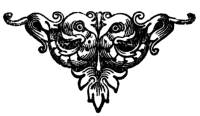
Tacoma, Washington, July 5, 1892.
 WE
left Portland at 8 a.m. on the 2d by rail, and arrived at this fine
hotel, “The Tacoma,” at 3.30 p.m. after a very agreeable and
comfortable trip. The first thing to attract our special attention was
a view of Mount Tacoma, as seen from the rear windows of the hotel,
truly a royal and splendid sight: a great mountain, of symmetrical
shape, covered with pure white snow. There are not many such mountains
to be seen anywhere; none so beautiful, as I remember, except the
Jungfrau at Interlaken, and Fusiyama in Japan.
WE
left Portland at 8 a.m. on the 2d by rail, and arrived at this fine
hotel, “The Tacoma,” at 3.30 p.m. after a very agreeable and
comfortable trip. The first thing to attract our special attention was
a view of Mount Tacoma, as seen from the rear windows of the hotel,
truly a royal and splendid sight: a great mountain, of symmetrical
shape, covered with pure white snow. There are not many such mountains
to be seen anywhere; none so beautiful, as I remember, except the
Jungfrau at Interlaken, and Fusiyama in Japan.
We have been in this place for three days, going about everywhere, and find it a wonderful example of a rapidly built city—solid and substantial, wide streets, great and costly[35] public and private buildings, an admirable system of swift-going street cars, running in every direction, by cable or electric power; fine dry-goods and other stores, and every indication of great business activity and success.
The citizens inform us that in 1880 there were thirty thousand inhabitants in this city, and now there are fifty thousand. Judging from the crowds on the streets and in the street cars, and the business activity seen everywhere, this must be correct. We attended service on Sunday at St. Paul’s Protestant Episcopal Church, built by Mr. Wright, of Philadelphia, in memory of his daughter. The church is a beautiful one; the service was rendered in an impressive manner, and the sermon was excellent.
Wishing to see Seattle, the other famous city of the State of Washington, I went there by rail in two hours, and, accompanied by a relative, spent the day looking at the buildings and shops, and travelling on the electric street cars, which run everywhere, with what appeared to be dangerous speed. We had an excellent lunch at a good hotel, situated on top of a hill, from which we looked down on the city and harbor. Looking[36] at the solid blocks of business houses, wholesale and retail, and the beautiful private residences, and knowing that there are now about fifty thousand inhabitants in the city, it is difficult to comprehend that fifteen or twenty years ago it was almost a wilderness. After lunch, we took seats in an electric car, and were carried five or six miles with the greatest ease, to a beautiful lake, where we found many interesting things to look at for an hour or two. We hear of a great deal of jealousy between Tacoma and Seattle, but to a stranger they appear to have much in common—large, substantial and handsome buildings, many of which would not be thought out of place in any city; prompt, energetic, and lively business men, and every appearance that the foundations have been laid for two great cities, to which the immense products of India, China, and Japan will naturally come for distribution throughout the United States and Europe.
Steamer “Queen,” July 7, 1892.
 AT
9 p.m. on the 5th instant we went on board the steamer Queen,
which, as there are no hotels in Alaska, is to be our home for two
weeks. The steamer is a fine, large vessel, with ample accommodations
for two hundred or more passengers. I had secured and paid for two
first-class staterooms two months in advance, but found, the first
night, that the ones given us were the worst on the ship, being
directly over the boiler, and consequently so hot that it was
impossible to live in them unless the doors were open. In addition to
this annoyance, when the watch was changed at 9 p.m., and at 1, 4, and
8 a.m., the ashes were hoisted from the hold, the rough and noisy
machinery[38] used being located in the rear of our rooms, apparently
within a foot or two. The iron ash-can was about eighteen inches in
diameter and four feet high, and when it was rushed up by steam power,
it made a tremendous noise, making sleep impossible. In the morning I
called on the purser, and asked him to change the rooms. He said that
he could not “change all the rooms in the ship,” but on being informed
that unless he gave my sister better accommodations we would abandon
the trip and go ashore at the next stopping place, he changed his
mind, and gave her a good room in the cabin below, but refused to
change mine unless I would pay fifty dollars additional. On
consultation with my roommate, Mr. Edwin S. Townsend, we concluded
that the advance asked was a violation of our contract with the
company, and that we would not pay it. We therefore endured the
distress and annoyance of the ash-lifting machinery. I did not remove
my clothing at night, but lay on the bed until the ash-can nuisance
commenced, and then left the room and walked the deck until the noise
stopped, in about half an hour. Being forced on deck at night had[39] its
inconveniences, but it had its compensations also, for it gave me the
chance to see the magnificent scenery by moonlight; and, one night,
there was a splendid display of aurora borealis, which illuminated the
entire northern sky.
AT
9 p.m. on the 5th instant we went on board the steamer Queen,
which, as there are no hotels in Alaska, is to be our home for two
weeks. The steamer is a fine, large vessel, with ample accommodations
for two hundred or more passengers. I had secured and paid for two
first-class staterooms two months in advance, but found, the first
night, that the ones given us were the worst on the ship, being
directly over the boiler, and consequently so hot that it was
impossible to live in them unless the doors were open. In addition to
this annoyance, when the watch was changed at 9 p.m., and at 1, 4, and
8 a.m., the ashes were hoisted from the hold, the rough and noisy
machinery[38] used being located in the rear of our rooms, apparently
within a foot or two. The iron ash-can was about eighteen inches in
diameter and four feet high, and when it was rushed up by steam power,
it made a tremendous noise, making sleep impossible. In the morning I
called on the purser, and asked him to change the rooms. He said that
he could not “change all the rooms in the ship,” but on being informed
that unless he gave my sister better accommodations we would abandon
the trip and go ashore at the next stopping place, he changed his
mind, and gave her a good room in the cabin below, but refused to
change mine unless I would pay fifty dollars additional. On
consultation with my roommate, Mr. Edwin S. Townsend, we concluded
that the advance asked was a violation of our contract with the
company, and that we would not pay it. We therefore endured the
distress and annoyance of the ash-lifting machinery. I did not remove
my clothing at night, but lay on the bed until the ash-can nuisance
commenced, and then left the room and walked the deck until the noise
stopped, in about half an hour. Being forced on deck at night had[39] its
inconveniences, but it had its compensations also, for it gave me the
chance to see the magnificent scenery by moonlight; and, one night,
there was a splendid display of aurora borealis, which illuminated the
entire northern sky.
After five nights spent in this disagreeable manner, one of our friends had a talk with the purser, and induced him to change the undesirable rooms for comfortable ones on the upper deck. We learned with much satisfaction that the steamer during the entire trip will go through a series of inland seas, and that we shall look upon the Pacific Ocean but two or three times, and then for only a few hours.
We arrived off Seattle at 4 a.m. on the 6th, and remained there five hours, giving those who wished an opportunity to go ashore and see that famous place. All day the beautiful vessel steamed along the quiet waters, until we reached Victoria, the capital of British Columbia, at 9 p.m. Most of our party thought they would like to see the place, so half a dozen of us went ashore, and after consulting some natives, we concluded to walk to the settled part of the city. It was quite a long walk, a mile or[40] more, passing government buildings and grounds, and many handsome houses, until we came to one of the business streets, and there we found the “Poodle Dog Restaurant,” rendered famous from a notice of it in Mrs. General Collis’s exceedingly interesting and beautifully illustrated book, “A Woman’s Trip to Alaska.” We had a little supper, and then took carriages back to the vessel, which soon afterward steamed away through the Gulf of Georgia, and along the coast of British Columbia toward Alaska, our goal.
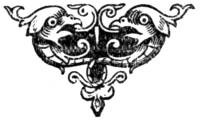
July 9, 1892.
 THIS
morning we went ashore at Fort Wrangell, but found little there
of interest. A lot of miserable Indians and dogs and old houses, a
post-office and a court-house. An Indian dressed himself as a warrior
in paint and feathers, and executed a war-dance in a barn for the
amusement of the visitors. I saw him dancing along the walk into the
barn, but did not care to see the show. At noon we left the fort, and
since then have been passing through scenes of unsurpassed
magnificence. Tall mountains were on either side, those nearest
covered with spruce-trees, and the ranges back of them white with
snow. Occasionally there were open spaces, where snow or land-slides
had taken place, making good feeding grounds for wild animals, but we
saw only one, a large elk,[42] who kept on feeding and did not notice our
ship. The sun set at a quarter past nine last evening. The steamer’s
route is generally between islands and the main land, the water smooth
and everything comfortable; but yesterday we came out upon the broad
Pacific Ocean for an hour or two, and some of the passengers were
sea-sick, but none of our party were troubled in that way. All
appeared regularly at meals, which were excellent: well-cooked meats
and vegetables, and plenty of fruit. Just now, at 8 p.m., we are in a
bay some twenty miles in extent, surrounded by great mountains covered
with snow. The setting sun shining on these makes a picture of extreme
beauty and grandeur. All day long we have been on deck admiring the
beautiful sights, the weather being fine, numerous sea-gulls in view,
occasionally a school of porpoises, and now and then a whale. Every
day we pass numerous islands, large and small, all covered with
spruce-trees and having a very charming appearance.
THIS
morning we went ashore at Fort Wrangell, but found little there
of interest. A lot of miserable Indians and dogs and old houses, a
post-office and a court-house. An Indian dressed himself as a warrior
in paint and feathers, and executed a war-dance in a barn for the
amusement of the visitors. I saw him dancing along the walk into the
barn, but did not care to see the show. At noon we left the fort, and
since then have been passing through scenes of unsurpassed
magnificence. Tall mountains were on either side, those nearest
covered with spruce-trees, and the ranges back of them white with
snow. Occasionally there were open spaces, where snow or land-slides
had taken place, making good feeding grounds for wild animals, but we
saw only one, a large elk,[42] who kept on feeding and did not notice our
ship. The sun set at a quarter past nine last evening. The steamer’s
route is generally between islands and the main land, the water smooth
and everything comfortable; but yesterday we came out upon the broad
Pacific Ocean for an hour or two, and some of the passengers were
sea-sick, but none of our party were troubled in that way. All
appeared regularly at meals, which were excellent: well-cooked meats
and vegetables, and plenty of fruit. Just now, at 8 p.m., we are in a
bay some twenty miles in extent, surrounded by great mountains covered
with snow. The setting sun shining on these makes a picture of extreme
beauty and grandeur. All day long we have been on deck admiring the
beautiful sights, the weather being fine, numerous sea-gulls in view,
occasionally a school of porpoises, and now and then a whale. Every
day we pass numerous islands, large and small, all covered with
spruce-trees and having a very charming appearance.
Glacier Bay, July 10, 1892.
 WE
arrived here at nine this morning, and have the great Muir Glacier
before us. It is about two miles wide, two or three hundred feet high,
and several hundred miles long. Every quarter of an hour or so we hear
a loud crack, followed by a noise like the discharge of a gun, then a
rumbling like thunder, and a big piece of ice, as large as a house,
and, sometimes, as a church, falls into the water, causing the great
steamer to rock. Word was passed for us to get into boats for an
excursion onto the glacier. We were cautioned to be prudent and not to
wander too far, and were told the story of a young Methodist
clergyman, who went out of sight of his companions and was never after
seen or heard of. It fell to my lot to escort a lady who, accompanied
by her maid, wished to[44] go on the glacier. A glacier may be said to be
a river of ice, formed on the mountains and forced downwards,
travelling the same as water, only slower. This one moves at the rate
of about forty feet a day, much faster than they do in the Alps. Those
at Chamouny, for instance, make only a foot or two a day. Our party
landed, and for some distance had the use of a plank walk. From
various parts of this we had fine views of the front of the glacier,
large pieces of which were frequently falling into the water, making a
great noise. We then, after much rough walking over stones and ice,
passed up to the main body of the glacier. The ice is forced up into
hillocks and ranges, wet, slippery, and difficult to travel on. Mrs.
B. tripped along lightly and safely, but not so her maid, whose shoes
were treacherous, and twice she came to grief, but no harm was done. I
had on arctic overshoes with corrugated soles, which served me well,
for I did not slip once. For an hour or two we wandered about,
admiring the ice, the views, the numerous small streams of clear water
formed by melted ice, and then returned to our quarters on board. At 7
p.m. the[45] stately vessel steamed around near the front of the glacier,
when, as if to give us a parting salute, an immense mass of ice, as
big as a church, fell into the water with a great noise. The
passengers cheered, and we went on our course, passing numerous ice
islands. The day was perfect, as the preceding ones had been.
WE
arrived here at nine this morning, and have the great Muir Glacier
before us. It is about two miles wide, two or three hundred feet high,
and several hundred miles long. Every quarter of an hour or so we hear
a loud crack, followed by a noise like the discharge of a gun, then a
rumbling like thunder, and a big piece of ice, as large as a house,
and, sometimes, as a church, falls into the water, causing the great
steamer to rock. Word was passed for us to get into boats for an
excursion onto the glacier. We were cautioned to be prudent and not to
wander too far, and were told the story of a young Methodist
clergyman, who went out of sight of his companions and was never after
seen or heard of. It fell to my lot to escort a lady who, accompanied
by her maid, wished to[44] go on the glacier. A glacier may be said to be
a river of ice, formed on the mountains and forced downwards,
travelling the same as water, only slower. This one moves at the rate
of about forty feet a day, much faster than they do in the Alps. Those
at Chamouny, for instance, make only a foot or two a day. Our party
landed, and for some distance had the use of a plank walk. From
various parts of this we had fine views of the front of the glacier,
large pieces of which were frequently falling into the water, making a
great noise. We then, after much rough walking over stones and ice,
passed up to the main body of the glacier. The ice is forced up into
hillocks and ranges, wet, slippery, and difficult to travel on. Mrs.
B. tripped along lightly and safely, but not so her maid, whose shoes
were treacherous, and twice she came to grief, but no harm was done. I
had on arctic overshoes with corrugated soles, which served me well,
for I did not slip once. For an hour or two we wandered about,
admiring the ice, the views, the numerous small streams of clear water
formed by melted ice, and then returned to our quarters on board. At 7
p.m. the[45] stately vessel steamed around near the front of the glacier,
when, as if to give us a parting salute, an immense mass of ice, as
big as a church, fell into the water with a great noise. The
passengers cheered, and we went on our course, passing numerous ice
islands. The day was perfect, as the preceding ones had been.

Sitka, July 11, 1892.
 AT
six o’clock this morning we arrived here. The weather was warm,
tempered by a cool breeze. Not a cloud was in the sky. This is a small
harbor, with many islands in sight. From the deck of the steamer we
could see the town, and on top of a hill a large wooden edifice, where
the Russian governor-general formerly resided. It is vacant now, and
in a dilapidated condition. We went ashore, and saw many Indians
sitting on the walks or by the side of the roads. They were dressed
nicely, and were better looking than any I ever saw before. They had
the usual supply of baskets and curios for sale.
AT
six o’clock this morning we arrived here. The weather was warm,
tempered by a cool breeze. Not a cloud was in the sky. This is a small
harbor, with many islands in sight. From the deck of the steamer we
could see the town, and on top of a hill a large wooden edifice, where
the Russian governor-general formerly resided. It is vacant now, and
in a dilapidated condition. We went ashore, and saw many Indians
sitting on the walks or by the side of the roads. They were dressed
nicely, and were better looking than any I ever saw before. They had
the usual supply of baskets and curios for sale.
We went in and out of several stores, and bought some curios, and then visited the Russian church, where there were some[47] fine paintings of saints and other religious subjects. Back about a rod from the water, with boats in front of them, were a hundred or more houses occupied by Indians. Accompanied by a resident doctor, we went into some of these houses, and saw how the Indians lived. Owing to the large number of dogs and quantities of bad-smelling fish, we were very glad to get away from that neighborhood.
One of our friends had chartered the only wagon in the town, and took us for a trip of a mile or two along the shore, among the sweet-smelling spruce-trees, to a small stream of water, over which we passed, and then rested in the woods. On our return, we went to the Presbyterian Mission, which is a large and important one. It consists of a group of buildings: a church, a school-house, and two large edifices erected at the expense of Mrs. Elliott F. Shepard, in which the young Indians are to be taught carpentry and other mechanical industries. We attended a school in session, and heard the reverend gentleman in charge examine the Indian girls and boys in arithmetic, reading, and writing. They appeared as bright and intelligent as any white children,[48] and as capable of being educated. It was reported to us that there were two hundred pupils in the school, and fourteen missionaries in charge.
Mrs. Richard H. L. Townsend, of New York, saw among the pupils a sweet-faced and bright girl ten years of age, and after talking to her awhile, adopted her to educate, agreeing to pay the mission for her support and education for a number of years. This lady, when in Japan in 1889, adopted in a similar way a little native girl there, and another native girl in China. These two children in their respective countries are getting along nicely with their education, and write to Mrs. T. sweet letters every month.
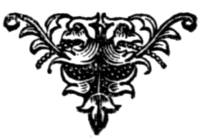
July 12, 1892.
 AT
7 p.m. last evening the steamer’s whistle sounded the last signal,
all our passengers came on board, and we started. Going out of the
harbor, we passed numerous small islands covered with spruce-trees.
The view of the town, the harbor, and the surrounding mountains made a
scene of great beauty. At half-past seven the steamer struck a rock.
The bow was forced high up out of water, and the stern, where I was
sitting with some ladies and gentlemen, careened over so much that we
had to hold on to the railing to prevent ourselves from falling. There
was no occasion for alarm, as we were within two hundred feet of an
island, and about a mile from the harbor of Sitka, where we could see
a revenue cutter lying, with her[50] steam up, and numerous rowboats
near. No one about us manifested any excitement, except one young
woman who became hysterical and had to be restrained. The tide was
rising, and our captain declined assistance from the captain of the
revenue cutter, thinking it best to wait for the tide to rise high
enough to float the vessel. The passengers were generally very cool,
except one gentleman from Chicago, said to be worth several million
dollars, who indulged in remarks about the proper way to navigate
steamers, and insisted that the captain of the Queen did not
understand his business, or he would not have run the vessel on rocks
in the daytime. Captain Carroll, hearing of these observations,
stepped up to the great capitalist and said: “Sir, if you do not like
the way I manage this ship, you can go ashore,” to which the
capitalist replied that he would. A boat was lowered, and the officer
in charge was directed to take this gentleman, together with his wife
and daughter, back to Sitka. There being no hotels in the town, and
hardly any accommodations whatever, except for Indians and dogs, the
prospect of being obliged to stop there for a week or[51] two was not
entertaining, so the wife and daughter remonstrated. The matter was
therefore smoothed over with the captain, and all parties remained on
board. Soon after this incident, a line was run to the shore of an
island near by, and attached to the trunk of a tree, to assist in
hauling the ship off. Every half hour or so the propeller would
commence running, and attempts would be made to start the steamer,
with no success, until 12.15 a.m., when, with much grating on the
bottom, she was floated off into deep water. The captain thought best
to take her back to Sitka, so we were soon anchored there again,
opposite Mrs. Shepard’s houses.
AT
7 p.m. last evening the steamer’s whistle sounded the last signal,
all our passengers came on board, and we started. Going out of the
harbor, we passed numerous small islands covered with spruce-trees.
The view of the town, the harbor, and the surrounding mountains made a
scene of great beauty. At half-past seven the steamer struck a rock.
The bow was forced high up out of water, and the stern, where I was
sitting with some ladies and gentlemen, careened over so much that we
had to hold on to the railing to prevent ourselves from falling. There
was no occasion for alarm, as we were within two hundred feet of an
island, and about a mile from the harbor of Sitka, where we could see
a revenue cutter lying, with her[50] steam up, and numerous rowboats
near. No one about us manifested any excitement, except one young
woman who became hysterical and had to be restrained. The tide was
rising, and our captain declined assistance from the captain of the
revenue cutter, thinking it best to wait for the tide to rise high
enough to float the vessel. The passengers were generally very cool,
except one gentleman from Chicago, said to be worth several million
dollars, who indulged in remarks about the proper way to navigate
steamers, and insisted that the captain of the Queen did not
understand his business, or he would not have run the vessel on rocks
in the daytime. Captain Carroll, hearing of these observations,
stepped up to the great capitalist and said: “Sir, if you do not like
the way I manage this ship, you can go ashore,” to which the
capitalist replied that he would. A boat was lowered, and the officer
in charge was directed to take this gentleman, together with his wife
and daughter, back to Sitka. There being no hotels in the town, and
hardly any accommodations whatever, except for Indians and dogs, the
prospect of being obliged to stop there for a week or[51] two was not
entertaining, so the wife and daughter remonstrated. The matter was
therefore smoothed over with the captain, and all parties remained on
board. Soon after this incident, a line was run to the shore of an
island near by, and attached to the trunk of a tree, to assist in
hauling the ship off. Every half hour or so the propeller would
commence running, and attempts would be made to start the steamer,
with no success, until 12.15 a.m., when, with much grating on the
bottom, she was floated off into deep water. The captain thought best
to take her back to Sitka, so we were soon anchored there again,
opposite Mrs. Shepard’s houses.
When I awoke this morning, the water was as still as a mill pond, and the sky cloudless, giving us another perfect day. It was found that no damage had been done to the steamer, and at 8 a.m. she started on her course. We are now passing through Peril Straits, very narrow, with mountains near, covered with trees. The water is shallow, and sometimes our stanch vessel grates roughly over the bottom. At one time, when passing an opening of a dozen miles, we looked upon the ocean,[52] with just enough swell to remind us how much more agreeable it is to sail on water where you are not liable to sea-sickness.
The captain has issued his usual noon-day bulletin, stating that the ship will arrive at certain places during the next twenty-four hours, provided she does not run on rocks, and there is no fog, and that “after Juneau, we will go to Taku Glacier, where we will obtain our supply of ice.” “Passengers are permitted to fill up with it, as it is exceedingly cheap, and cooling to the mind.”
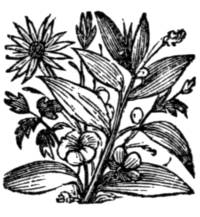
Juneau, July 13, 1892.
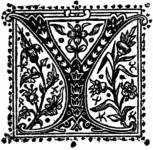 YESTERDAY
we were moving through the straits, and looking upon the
majestic scenery which distinguishes Alaska, for a thousand miles from
Tacoma. We passed the great Davidson Glacier, and during the afternoon
and evening were constantly seeing immense ranges of mountains, until
we reached Icy Bay at seven this morning. Here the steamer took in her
supply of ice, fishing it out of the water and hoisting it on board,
several tons at a time. Coming into Icy Bay, the scenery was of
extraordinary grandeur, mountains many thousand feet high, the bases
of which were near the water, and numerous waterfalls and glaciers.
Some of us sat up nearly all night to see the[54] wonders, the like of
which cannot be seen anywhere in the world, except, perhaps, in
Greenland. After midnight the moon came up in all her glory, and the
northern lights played fantastic tricks in the sky. The great glacier
in this bay is a wonder, a mile wide and several hundred feet high,
the ice falling off every few minutes in great masses. Once I saw two
great ice towers, looking much like those of the Church of Notre Dame
in Paris, and I called the attention of a lady to them. Hardly had I
made the remark, before they both crumbled down into the water with a
tremendous crash, making our big ship feel the force of the waves
caused by the fall. After leaving Icy Bay we touched at Treadwell at
noon, where are located some famous gold mines. Most of the passengers
went ashore and were permitted to go through the large buildings of
the mining company, and see the operations of getting gold from rocks.
The blasting was going on a short distance off. The ore was
transported by rail to the mill, and then pounded into powder by
several hundred powerful steam hammers, which made a prodigious din.
This powdered stone was mixed with running[55] water, and we were
informed that the gold was obtained in that way, but we saw none of
it. An hour was quite sufficient for Treadwell, so we steamed over to
this place, nearly opposite, and went ashore. There are several
hundred houses in this town, built at the base of the mountains. Near
the water there was the usual number of Indian women squatting on the
ground and offering baskets and curios for sale. The stores are well
supplied with skins of foxes, bears, and other wild animals, and the
usual goods required in country places.
YESTERDAY
we were moving through the straits, and looking upon the
majestic scenery which distinguishes Alaska, for a thousand miles from
Tacoma. We passed the great Davidson Glacier, and during the afternoon
and evening were constantly seeing immense ranges of mountains, until
we reached Icy Bay at seven this morning. Here the steamer took in her
supply of ice, fishing it out of the water and hoisting it on board,
several tons at a time. Coming into Icy Bay, the scenery was of
extraordinary grandeur, mountains many thousand feet high, the bases
of which were near the water, and numerous waterfalls and glaciers.
Some of us sat up nearly all night to see the[54] wonders, the like of
which cannot be seen anywhere in the world, except, perhaps, in
Greenland. After midnight the moon came up in all her glory, and the
northern lights played fantastic tricks in the sky. The great glacier
in this bay is a wonder, a mile wide and several hundred feet high,
the ice falling off every few minutes in great masses. Once I saw two
great ice towers, looking much like those of the Church of Notre Dame
in Paris, and I called the attention of a lady to them. Hardly had I
made the remark, before they both crumbled down into the water with a
tremendous crash, making our big ship feel the force of the waves
caused by the fall. After leaving Icy Bay we touched at Treadwell at
noon, where are located some famous gold mines. Most of the passengers
went ashore and were permitted to go through the large buildings of
the mining company, and see the operations of getting gold from rocks.
The blasting was going on a short distance off. The ore was
transported by rail to the mill, and then pounded into powder by
several hundred powerful steam hammers, which made a prodigious din.
This powdered stone was mixed with running[55] water, and we were
informed that the gold was obtained in that way, but we saw none of
it. An hour was quite sufficient for Treadwell, so we steamed over to
this place, nearly opposite, and went ashore. There are several
hundred houses in this town, built at the base of the mountains. Near
the water there was the usual number of Indian women squatting on the
ground and offering baskets and curios for sale. The stores are well
supplied with skins of foxes, bears, and other wild animals, and the
usual goods required in country places.
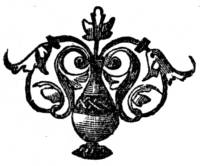
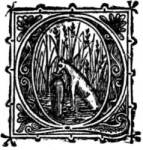 ON
the evening of the 13th we left Juneau, and reached Chilcat, the
most northerly place on our course, the following morning. Then
commenced the return trip over much the same route which we took on
the outgoing voyage, passing the mountains, glaciers, and islands we
had seen before. The passengers amused themselves in various ways, one
group in the cabin telling stories to pass away the time.
ON
the evening of the 13th we left Juneau, and reached Chilcat, the
most northerly place on our course, the following morning. Then
commenced the return trip over much the same route which we took on
the outgoing voyage, passing the mountains, glaciers, and islands we
had seen before. The passengers amused themselves in various ways, one
group in the cabin telling stories to pass away the time.
One of this party interviewed an elderly gentleman, and asked him if there was not a history connected with the great scar which extended across his face, and the gentleman very kindly told the following, which may be called[57]—
“My name is Neilson, and I have been at sea since I was a boy. For many years I served before the mast, then as mate, and finally as captain, on many voyages in different parts of the world. Back in the fifties I was in command of a whaling ship owned in San Francisco, and we sailed from that port to the selected cruising ground in Behring Sea, between the Aleutian Islands and Behring Strait. Once we sailed through the strait into the Arctic Ocean, but the intense cold and immense masses of floating ice drove us back in a damaged condition. We secured a good many whales after some months’ cruising about, until, one day, a violent storm came up, and we were driven ashore on St. Lawrence Island, near North Cape. The ship was a total loss, but all the officers and crew succeeded in getting ashore, and a passing ship took us back to San Francisco. I stopped in the city for some weeks, and talked a good deal with an old friend, Captain Samuel, who had also been so unfortunate as to lose his ship on a whaling voyage. We looked about and found some capitalists who purchased a ship for us, and we determined to[58] try our luck again, searching for whales in the Behring Sea. Captain Samuel suggested that I should be captain and he would act as mate, but I told him no, that he, being the elder and more experienced, should be captain, and I the mate, and it was so arranged. The captain of a whaling craft always has a share of the results of the voyage, and the mate another, but not so large as the captain’s. It was agreed between us that on this voyage we would divide the profits, if any, equally. It will be understood that at this time whaling voyages were very profitable, sperm oil often selling in the San Francisco market for two dollars and fifty cents per gallon.
“We shipped a crew of ten men, and a second mate, took on provisions for a long voyage, and sailed for Behring Sea. We cruised about over three months, and had remarkable success, having harpooned and secured several large sperm whales, so we felt that we were going to have a good voyage.
“The crew was a rough one, and sometimes we heard murmurs of discontent about the labor of trying out the oil, and about the food, but we paid no attention, thinking it only the usual growling among[59] sailors. One day the captain and I were in the cabin, when he, hearing a noise, stepped on deck, and was at once assaulted by a man with a cutlass, and instantly killed. Hearing the uproar, I too rushed on deck only to be in season to see the prostrate form of the murdered captain, and a sailor with a drawn cutlass coming toward me. As I backed down the companion-way he hit me on the head, where the scar is, which has attracted your attention. I fell into the hold, and the mutineers, thinking I was dead, did not follow me. I found, in the hold, the second mate, unhurt, who staunched the flowing blood from my wound, and bound it up with some old canvas. At that time I was nearly forty years younger than I am now, and was as tough as men are made. The mutineers heard us moving about, and fired at us with muskets loaded with ball, but did not hit us. For some reason, they did not venture down after us, probably because they knew there were loaded muskets within our reach, and that we would be sure to use them. We found the muskets, but they were useless, having been wet.
“As every moment’s delay was danger[60]ous, we being liable to be hunted down, killed, and thrown into the sea, to follow the body of our murdered captain, it became necessary for us to think and act quickly.
“We could hear the men, who were collected together directly over the cabin, talking loudly and excitedly. I knew where the magazine was, and getting a keg of powder, placed it directly under where the mutineers were standing, laid a train from it to the bow of the vessel, and touched a match to it. The explosion was almost instantaneous, and tremendous in its results, throwing to the right and left that part of the cabin over which the mutineers were, and killing or drowning every man except three, who, evidently thinking the ship was a wreck, hastily got into a boat and rowed away.
“We listened for some time, but hearing no noise, went on deck, and found on examination that the hull of the ship was perfectly sound, and that no damage had been done to the masts; so that with some assistance we could navigate her into port. We obtained the assistance required from a passing vessel, and in due season arrived at San Francisco. There was a good deal[61] of valuable sperm oil on board, which was sold, and gave the second mate and myself quite a sum of money, the owners being disposed to be liberal under the extraordinary circumstances.
“After this, I concluded to abandon the sea, and went into the business of supplying water to ships in the port of San Francisco.
“I had followed this business for twelve years, when one day, as I was furnishing water for a whaling ship, I saw among the sailors a man who, I felt quite certain, was the ring-leader of the gang of murderous mutineers who killed our captain and came so near making an end of me. I communicated my suspicions to the captain of the whaler, but he said that his ship was ready to sail, and that he would take the man, but would keep a watch on him, and find out if he talked while at sea. When this ship returned, the captain sought me out, and said: ‘He is your man, for he talked during the voyage, and told about being on a ship on which an explosion took place, and he and two others were the only survivors.’ I had the man arrested, but the administration of justice was very lax at[62] that time in California, and the time which had elapsed since the commission of the crime rendered proof difficult to obtain, so the man escaped the gallows.
“This, gentlemen, is the story of how I became scarred for life, as you see.”
Another tale related by one of the storytelling group ran as follows:
“I am an expert in umbrellas, take good care of them, and they generally serve me for many years. I have one purchased in Florence, another from the Bon Marché, Paris, and this one, which I hold in my hand, bought at the Burlington Arcade, London, has been a good and faithful servant, having been used as a cane when tramping through Italy, France, Germany, and England. It has sheltered me from the rains of Japan, and the terrible sun in China, Ceylon, India, Egypt, and Turkey. It has been re-covered in Vienna, and had a new stick put in at New York, and, as you see, is now in fair condition. One day, in Constantinople, I wandered along the street called La Grande Rue de Pera, which is[63] about a mile long, and on which are located the principal foreign shops; but I failed to discover anything grand about it, and one is annoyed to have to avoid stepping on great yellow dogs, who are sleeping on the sidewalks, when there are any, and in the roadway. At one end of this street are cable cars, which carry you down a sharp incline to the streets on the water. I took one of these cars down, and in a few minutes passed over the famous bridge which connects Galata with Constantinople proper, to a wharf, where I was detained some time waiting for a steamboat to take me on the splendid and never-to-be-forgotten trip up the Bosphorus, to the entrance of the Black Sea. Many large yellow dogs were wandering about on the wharf, and one of them coming near me, I scratched his back with this umbrella, which he took for a hostile demonstration, and bit the umbrella in a most savage way, with his long, sharp teeth. I succeeded in getting it away from him, and was glad that he did not try his teeth on me. From that day I have been careful about undertaking to pet strange dogs with umbrellas, or anything else, but I forgot the Constantinople experience yesterday[64] at Sitka, when I went ashore, and after wandering around among the Indian women, who were sitting on the grass surrounded by their mats, bottles, and various curios, I stopped opposite one of them, and saw, lying down in front of her, a very small dog, which I supposed was a puppy, but it proved to be full grown, and a very ugly little beast. I touched him with the umbrella, and he barked in a furious manner, and making one jump, fastened his teeth into my leg above the knee. I shook him off, the Indian woman put him under her blanket, and I returned to the ship to repair damages with court-plaster, vowing that never shall this umbrella be used again to pet a strange dog.”
Indian reminiscences being in order, one of our party related the following:
“Sarah Arbuckle came to this country, with her father and brothers, about 1740, when she was sixteen years old. They settled in the midst of a dense wilderness, where the town of Merrimac now stands,[65] many miles from neighbors, and she was their housekeeper. It was so lonely that many times a day, she would step out-of-doors to listen for the sound of their axes, and if it ceased for any length of time, she would tremble with fear lest the Indians or wild beasts had attacked them.
“One morning she was stooping over the fireplace, making the ‘stirabout’ (Indian hasty pudding) for breakfast, when a shadow falling across the floor startled her, and turning hastily to the open door, she was frightened almost to death at the sight of a gigantic Indian standing at the threshold, with blood streaming down all over one side of his face. He tried to speak to her, but she could not understand him. When she was a little over her fright, she saw that there was an arrow sticking in his eye, which he wanted her to remove. She plucked up courage, drew the arrow out, dressed the wound, gave him food, and he stayed there and was cared for a few days, and then disappeared in the woods. Some years after this occurrence, a war broke out between the Indians and settlers, and the Arbuckles were preparing to remove to the garrison house for safety, when, one evening,[66] a band of Indians, with fearful yells, burst in the doors of their house, and the tomahawk was just descending on Sarah’s head, when at a word spoken by a chief, who rushed in after them, every warrior dropped his hand, and silently, one after another, filed out into the darkness, leaving the chief with the family. He had learned enough English to tell them that he had been there before, and had been assisted by them, and that they need fear nothing. They might remain on their place, and would not be molested. They did so throughout the war, and had no further trouble. This Indian came to see them annually, for years after, always bringing them some little present.”
These and other stories helped us to while away the time until we arrived at Nanaimo, at six o’clock on the morning of July 16th. Here our party left the steamer and embarked on a ferry-boat.
In two hours we landed at Vancouver, British Columbia, and found there a first-class hotel. Ten years ago, we were informed, the place on which the city is[67] built was a wilderness, but when the Canadian Pacific Railroad made it the western terminus of its line, there was at once a “boom,” such as has been seen so often in our own Western States, and now there are banks, public buildings, fine streets, electric cars, and all the appliances to make strangers and residents happy.
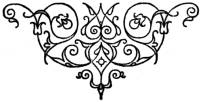
Glacier House,
Canadian Pacific Railway, July 19, 1892.
 WE
left Vancouver at 2.20 p.m. on the 16th, and made our acquaintance
with this great transcontinental railway. I think it fully as good as
any of those over which I have travelled in recent years. A good
roadbed, fine and comfortable cars, polite attendants, and every thing
supplied to make travelling agreeable. The road runs for many miles on
the banks of the Frazier River. Great mountains tower above, covered
with snow, and there are distant views of glaciers, which would have
been thought immense if we had not seen those in Alaska. We were
detained all day Sunday at a place called Kamloops, a telegram having
been received that a freight train had been derailed eighty miles
eastward. Some of us attended service at[69] a small Methodist Church,
and listened to a good sermon from a young man who had for a
congregation only about twenty persons. Leaving Kamloops on the
evening of the 17th, we arrived here at seven the next morning. This
hotel, which was built and is kept by the railway company, is a fine
one, and guests are made very comfortable by the excellent manager,
Mr. Pearly. The valley through which the road passes does not contain
more than two or three hundred acres, and is surrounded by immense
mountains, one of which, Sir Donald, is a mile and a half high. Small
streams of melted ice and snow come rushing down from the tops of
these mountains, and form a pretty little river, in some places not
more than twenty-five feet wide. Our party took a two-mile walk over a
rough path to a great glacier among the mountains, Mr. Pearly acting
as guide. It was a hard tramp through the woods, and over small
streams, but we all survived it, and in a couple of hours returned to
the hotel, very much fatigued, but well pleased. Near the hotel, the
railway tracks are covered with substantial snow-sheds about a mile
long, made of heavy planks and timber, affording[70] an excellent place
for walking and viewing the surrounding mountains. A party of ladies
and gentlemen went out on these sheds this morning, and spent some
time walking back and forth, viewing the magnificent scenery. The
surrounding mountains appeared colossal in their grandeur. We had a
fine view of them, and of the great glacier, and the valley below. The
scenery all along this railway from Vancouver impresses me as the most
splendid I have ever seen anywhere, with the exception of once, when
we came up from the hot plains of India, crossed the Ganges, and
taking a little narrow-gauge railway, crawled up the mighty Himalayas
to Darjeeling, arriving at sunset. It was a glorious sight, four
mighty ranges of mountains, among them Mount Everest, twenty-nine
thousand feet high. But this is a digression. From our place of
observation on the snow-sheds we were looking down into the valley,
when suddenly Mr. Edwin T. Townsend shouted: “There is a bear,” and
all eyes were turned in the direction of the little stream running
through the valley below, about one-third of a mile off. On a small
island in this stream, wandering about, was[71] a big grizzly, as large
as a cow. He was in sight for half an hour, and seemed to be a playful
kind of a beast. He would wade out into the stream, and get something
to eat, probably refuse from the hotel, then go ashore and devour it;
and once he got hold of a good-sized spruce-tree and shook it
violently. Mr. Eden, of Winnipeg, went to the hotel for a gun, and,
accompanied by another gentleman, tried to head off the bear and get a
shot at him, but he disappeared and could not be found.
WE
left Vancouver at 2.20 p.m. on the 16th, and made our acquaintance
with this great transcontinental railway. I think it fully as good as
any of those over which I have travelled in recent years. A good
roadbed, fine and comfortable cars, polite attendants, and every thing
supplied to make travelling agreeable. The road runs for many miles on
the banks of the Frazier River. Great mountains tower above, covered
with snow, and there are distant views of glaciers, which would have
been thought immense if we had not seen those in Alaska. We were
detained all day Sunday at a place called Kamloops, a telegram having
been received that a freight train had been derailed eighty miles
eastward. Some of us attended service at[69] a small Methodist Church,
and listened to a good sermon from a young man who had for a
congregation only about twenty persons. Leaving Kamloops on the
evening of the 17th, we arrived here at seven the next morning. This
hotel, which was built and is kept by the railway company, is a fine
one, and guests are made very comfortable by the excellent manager,
Mr. Pearly. The valley through which the road passes does not contain
more than two or three hundred acres, and is surrounded by immense
mountains, one of which, Sir Donald, is a mile and a half high. Small
streams of melted ice and snow come rushing down from the tops of
these mountains, and form a pretty little river, in some places not
more than twenty-five feet wide. Our party took a two-mile walk over a
rough path to a great glacier among the mountains, Mr. Pearly acting
as guide. It was a hard tramp through the woods, and over small
streams, but we all survived it, and in a couple of hours returned to
the hotel, very much fatigued, but well pleased. Near the hotel, the
railway tracks are covered with substantial snow-sheds about a mile
long, made of heavy planks and timber, affording[70] an excellent place
for walking and viewing the surrounding mountains. A party of ladies
and gentlemen went out on these sheds this morning, and spent some
time walking back and forth, viewing the magnificent scenery. The
surrounding mountains appeared colossal in their grandeur. We had a
fine view of them, and of the great glacier, and the valley below. The
scenery all along this railway from Vancouver impresses me as the most
splendid I have ever seen anywhere, with the exception of once, when
we came up from the hot plains of India, crossed the Ganges, and
taking a little narrow-gauge railway, crawled up the mighty Himalayas
to Darjeeling, arriving at sunset. It was a glorious sight, four
mighty ranges of mountains, among them Mount Everest, twenty-nine
thousand feet high. But this is a digression. From our place of
observation on the snow-sheds we were looking down into the valley,
when suddenly Mr. Edwin T. Townsend shouted: “There is a bear,” and
all eyes were turned in the direction of the little stream running
through the valley below, about one-third of a mile off. On a small
island in this stream, wandering about, was[71] a big grizzly, as large
as a cow. He was in sight for half an hour, and seemed to be a playful
kind of a beast. He would wade out into the stream, and get something
to eat, probably refuse from the hotel, then go ashore and devour it;
and once he got hold of a good-sized spruce-tree and shook it
violently. Mr. Eden, of Winnipeg, went to the hotel for a gun, and,
accompanied by another gentleman, tried to head off the bear and get a
shot at him, but he disappeared and could not be found.

Banff Springs Hotel,
Canadian National Park, July 22, 1892.
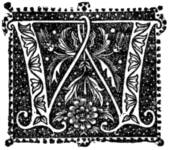 WE
left the Glacier Hotel on the 19th, at 1 p.m., or, as stated in the
time tables of this country, at thirteen o’clock, and arrived here at
11 p.m. We spent the whole time on the observation car, viewing the
mighty mountains and magnificent scenery along the banks of the
Columbia and the Beaver.
WE
left the Glacier Hotel on the 19th, at 1 p.m., or, as stated in the
time tables of this country, at thirteen o’clock, and arrived here at
11 p.m. We spent the whole time on the observation car, viewing the
mighty mountains and magnificent scenery along the banks of the
Columbia and the Beaver.
Banff is an ideal place for an hotel, being situated near the Bow River Falls and the mouth of the Spray, and surrounded by great mountains, often ten thousand feet high. There are fine roads and walks everywhere. The hotel is a splendid one, built and run by the railway company, and everything about it is first-class. Sulphur springs are located two miles up among the mountains,[73] the water being brought down in pipes to the rear of the hotel, where there are bathing houses, and an open-air bathing tank, thirty by twenty feet and five feet deep. The water in this tank is strongly impregnated with sulphur. Young Mr. Townsend and I took a bath in this tank, and found the water so delightful, soft, and nice to swim about in, that we stopped in too long, or were not sufficiently cautious coming out, and I caught a bad cold, followed by a cough and headache, and consequently had to spend a couple of days in bed, seeking, with the aid of Doctors Diet and Quiet, to recuperate.
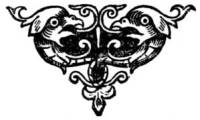
 WE
left Banff at 10.20 p.m. on the 22d, and after two days and two
nights on the cars, reached Winnipeg, the capital of Manitoba. At the
hotel there we found the rooms for which we had telegraphed ready for
us. The sulphur bath at Banff, and the subsequent exposure, proved too
much for me, and I was obliged to go to bed and stay there for a week.
Very often I suffered extreme pain in the head, and was only conscious
of being carefully nursed by my sister and travelling companions, and
attended by a skilful doctor. After three days and nights of
continuous illness I grew better, and began to appreciate how
exceedingly kind every one was. One lady, Mrs. E., of Winnipeg, sent
for my use calf’s-foot jelly and beef tea prepared by her own fair
hands, and[75] accompanied with beautiful flowers from her garden.
Another one, Mrs. B., of New Orleans, sent a pot of beautiful
flowering fuchsia. All of which attentions were very acceptable.
WE
left Banff at 10.20 p.m. on the 22d, and after two days and two
nights on the cars, reached Winnipeg, the capital of Manitoba. At the
hotel there we found the rooms for which we had telegraphed ready for
us. The sulphur bath at Banff, and the subsequent exposure, proved too
much for me, and I was obliged to go to bed and stay there for a week.
Very often I suffered extreme pain in the head, and was only conscious
of being carefully nursed by my sister and travelling companions, and
attended by a skilful doctor. After three days and nights of
continuous illness I grew better, and began to appreciate how
exceedingly kind every one was. One lady, Mrs. E., of Winnipeg, sent
for my use calf’s-foot jelly and beef tea prepared by her own fair
hands, and[75] accompanied with beautiful flowers from her garden.
Another one, Mrs. B., of New Orleans, sent a pot of beautiful
flowering fuchsia. All of which attentions were very acceptable.
Ever since we left Vancouver, all along the railroad, there was a small-pox scare. There had been a hundred cases at Victoria, and the city had been quarantined; reports were also circulated that the disease was bad at Vancouver, and as a consequence the passengers on our train were looked upon with suspicion. At one stopping place, called Medicine Hat, ropes were put around the station, and the passengers were prevented from going into the town. The governor of North Dakota issued a proclamation forbidding all persons to come into that State from Manitoba, by rail or otherwise, because a Chinaman near the line, and a girl who nursed him, had the small-pox. In two or three days, however, this proclamation was withdrawn, much to my relief, as I wished to return home by the shortest route. The Manitoba Hotel, where we were located, is owned and managed by the Northern Pacific Railroad Co., and is a model one in every way.
When sufficiently recovered from my at one time serious illness, I took several drives about the thriving and beautiful city, and finally, on August 2d, we started by the Great Northern Railroad for home. One day at Minneapolis was altogether too little time for seeing one of the finest cities of its size in the world. Two days were spent at Chicago, during which we drove around the Exposition buildings, now rapidly nearing completion; then we took places previously engaged on the Pennsylvania Limited, and in twenty-five hours were landed in Jersey City. We happened to occupy a car which had just been put on the road, containing many new appliances and conveniences, the latest inventions of Mr. Pullman.
Thus pleasantly our journey ended, and we arrived safely home again, after an absence of just fifty-one days.
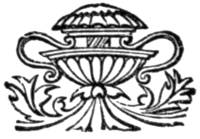
End of the Project Gutenberg EBook of Another Summer, by Charles J. Gillis
*** END OF THIS PROJECT GUTENBERG EBOOK ANOTHER SUMMER ***
***** This file should be named 40824-h.htm or 40824-h.zip *****
This and all associated files of various formats will be found in:
http://www.gutenberg.org/4/0/8/2/40824/
Produced by Greg Bergquist, Matthew Wheaton and the Online
Distributed Proofreading Team at http://www.pgdp.net (This
file was produced from images generously made available
by The Internet Archive/American Libraries.)
Updated editions will replace the previous one--the old editions
will be renamed.
Creating the works from public domain print editions means that no
one owns a United States copyright in these works, so the Foundation
(and you!) can copy and distribute it in the United States without
permission and without paying copyright royalties. Special rules,
set forth in the General Terms of Use part of this license, apply to
copying and distributing Project Gutenberg-tm electronic works to
protect the PROJECT GUTENBERG-tm concept and trademark. Project
Gutenberg is a registered trademark, and may not be used if you
charge for the eBooks, unless you receive specific permission. If you
do not charge anything for copies of this eBook, complying with the
rules is very easy. You may use this eBook for nearly any purpose
such as creation of derivative works, reports, performances and
research. They may be modified and printed and given away--you may do
practically ANYTHING with public domain eBooks. Redistribution is
subject to the trademark license, especially commercial
redistribution.
*** START: FULL LICENSE ***
THE FULL PROJECT GUTENBERG LICENSE
PLEASE READ THIS BEFORE YOU DISTRIBUTE OR USE THIS WORK
To protect the Project Gutenberg-tm mission of promoting the free
distribution of electronic works, by using or distributing this work
(or any other work associated in any way with the phrase "Project
Gutenberg"), you agree to comply with all the terms of the Full Project
Gutenberg-tm License available with this file or online at
www.gutenberg.org/license.
Section 1. General Terms of Use and Redistributing Project Gutenberg-tm
electronic works
1.A. By reading or using any part of this Project Gutenberg-tm
electronic work, you indicate that you have read, understand, agree to
and accept all the terms of this license and intellectual property
(trademark/copyright) agreement. If you do not agree to abide by all
the terms of this agreement, you must cease using and return or destroy
all copies of Project Gutenberg-tm electronic works in your possession.
If you paid a fee for obtaining a copy of or access to a Project
Gutenberg-tm electronic work and you do not agree to be bound by the
terms of this agreement, you may obtain a refund from the person or
entity to whom you paid the fee as set forth in paragraph 1.E.8.
1.B. "Project Gutenberg" is a registered trademark. It may only be
used on or associated in any way with an electronic work by people who
agree to be bound by the terms of this agreement. There are a few
things that you can do with most Project Gutenberg-tm electronic works
even without complying with the full terms of this agreement. See
paragraph 1.C below. There are a lot of things you can do with Project
Gutenberg-tm electronic works if you follow the terms of this agreement
and help preserve free future access to Project Gutenberg-tm electronic
works. See paragraph 1.E below.
1.C. The Project Gutenberg Literary Archive Foundation ("the Foundation"
or PGLAF), owns a compilation copyright in the collection of Project
Gutenberg-tm electronic works. Nearly all the individual works in the
collection are in the public domain in the United States. If an
individual work is in the public domain in the United States and you are
located in the United States, we do not claim a right to prevent you from
copying, distributing, performing, displaying or creating derivative
works based on the work as long as all references to Project Gutenberg
are removed. Of course, we hope that you will support the Project
Gutenberg-tm mission of promoting free access to electronic works by
freely sharing Project Gutenberg-tm works in compliance with the terms of
this agreement for keeping the Project Gutenberg-tm name associated with
the work. You can easily comply with the terms of this agreement by
keeping this work in the same format with its attached full Project
Gutenberg-tm License when you share it without charge with others.
1.D. The copyright laws of the place where you are located also govern
what you can do with this work. Copyright laws in most countries are in
a constant state of change. If you are outside the United States, check
the laws of your country in addition to the terms of this agreement
before downloading, copying, displaying, performing, distributing or
creating derivative works based on this work or any other Project
Gutenberg-tm work. The Foundation makes no representations concerning
the copyright status of any work in any country outside the United
States.
1.E. Unless you have removed all references to Project Gutenberg:
1.E.1. The following sentence, with active links to, or other immediate
access to, the full Project Gutenberg-tm License must appear prominently
whenever any copy of a Project Gutenberg-tm work (any work on which the
phrase "Project Gutenberg" appears, or with which the phrase "Project
Gutenberg" is associated) is accessed, displayed, performed, viewed,
copied or distributed:
This eBook is for the use of anyone anywhere at no cost and with
almost no restrictions whatsoever. You may copy it, give it away or
re-use it under the terms of the Project Gutenberg License included
with this eBook or online at www.gutenberg.org
1.E.2. If an individual Project Gutenberg-tm electronic work is derived
from the public domain (does not contain a notice indicating that it is
posted with permission of the copyright holder), the work can be copied
and distributed to anyone in the United States without paying any fees
or charges. If you are redistributing or providing access to a work
with the phrase "Project Gutenberg" associated with or appearing on the
work, you must comply either with the requirements of paragraphs 1.E.1
through 1.E.7 or obtain permission for the use of the work and the
Project Gutenberg-tm trademark as set forth in paragraphs 1.E.8 or
1.E.9.
1.E.3. If an individual Project Gutenberg-tm electronic work is posted
with the permission of the copyright holder, your use and distribution
must comply with both paragraphs 1.E.1 through 1.E.7 and any additional
terms imposed by the copyright holder. Additional terms will be linked
to the Project Gutenberg-tm License for all works posted with the
permission of the copyright holder found at the beginning of this work.
1.E.4. Do not unlink or detach or remove the full Project Gutenberg-tm
License terms from this work, or any files containing a part of this
work or any other work associated with Project Gutenberg-tm.
1.E.5. Do not copy, display, perform, distribute or redistribute this
electronic work, or any part of this electronic work, without
prominently displaying the sentence set forth in paragraph 1.E.1 with
active links or immediate access to the full terms of the Project
Gutenberg-tm License.
1.E.6. You may convert to and distribute this work in any binary,
compressed, marked up, nonproprietary or proprietary form, including any
word processing or hypertext form. However, if you provide access to or
distribute copies of a Project Gutenberg-tm work in a format other than
"Plain Vanilla ASCII" or other format used in the official version
posted on the official Project Gutenberg-tm web site (www.gutenberg.org),
you must, at no additional cost, fee or expense to the user, provide a
copy, a means of exporting a copy, or a means of obtaining a copy upon
request, of the work in its original "Plain Vanilla ASCII" or other
form. Any alternate format must include the full Project Gutenberg-tm
License as specified in paragraph 1.E.1.
1.E.7. Do not charge a fee for access to, viewing, displaying,
performing, copying or distributing any Project Gutenberg-tm works
unless you comply with paragraph 1.E.8 or 1.E.9.
1.E.8. You may charge a reasonable fee for copies of or providing
access to or distributing Project Gutenberg-tm electronic works provided
that
- You pay a royalty fee of 20% of the gross profits you derive from
the use of Project Gutenberg-tm works calculated using the method
you already use to calculate your applicable taxes. The fee is
owed to the owner of the Project Gutenberg-tm trademark, but he
has agreed to donate royalties under this paragraph to the
Project Gutenberg Literary Archive Foundation. Royalty payments
must be paid within 60 days following each date on which you
prepare (or are legally required to prepare) your periodic tax
returns. Royalty payments should be clearly marked as such and
sent to the Project Gutenberg Literary Archive Foundation at the
address specified in Section 4, "Information about donations to
the Project Gutenberg Literary Archive Foundation."
- You provide a full refund of any money paid by a user who notifies
you in writing (or by e-mail) within 30 days of receipt that s/he
does not agree to the terms of the full Project Gutenberg-tm
License. You must require such a user to return or
destroy all copies of the works possessed in a physical medium
and discontinue all use of and all access to other copies of
Project Gutenberg-tm works.
- You provide, in accordance with paragraph 1.F.3, a full refund of any
money paid for a work or a replacement copy, if a defect in the
electronic work is discovered and reported to you within 90 days
of receipt of the work.
- You comply with all other terms of this agreement for free
distribution of Project Gutenberg-tm works.
1.E.9. If you wish to charge a fee or distribute a Project Gutenberg-tm
electronic work or group of works on different terms than are set
forth in this agreement, you must obtain permission in writing from
both the Project Gutenberg Literary Archive Foundation and Michael
Hart, the owner of the Project Gutenberg-tm trademark. Contact the
Foundation as set forth in Section 3 below.
1.F.
1.F.1. Project Gutenberg volunteers and employees expend considerable
effort to identify, do copyright research on, transcribe and proofread
public domain works in creating the Project Gutenberg-tm
collection. Despite these efforts, Project Gutenberg-tm electronic
works, and the medium on which they may be stored, may contain
"Defects," such as, but not limited to, incomplete, inaccurate or
corrupt data, transcription errors, a copyright or other intellectual
property infringement, a defective or damaged disk or other medium, a
computer virus, or computer codes that damage or cannot be read by
your equipment.
1.F.2. LIMITED WARRANTY, DISCLAIMER OF DAMAGES - Except for the "Right
of Replacement or Refund" described in paragraph 1.F.3, the Project
Gutenberg Literary Archive Foundation, the owner of the Project
Gutenberg-tm trademark, and any other party distributing a Project
Gutenberg-tm electronic work under this agreement, disclaim all
liability to you for damages, costs and expenses, including legal
fees. YOU AGREE THAT YOU HAVE NO REMEDIES FOR NEGLIGENCE, STRICT
LIABILITY, BREACH OF WARRANTY OR BREACH OF CONTRACT EXCEPT THOSE
PROVIDED IN PARAGRAPH 1.F.3. YOU AGREE THAT THE FOUNDATION, THE
TRADEMARK OWNER, AND ANY DISTRIBUTOR UNDER THIS AGREEMENT WILL NOT BE
LIABLE TO YOU FOR ACTUAL, DIRECT, INDIRECT, CONSEQUENTIAL, PUNITIVE OR
INCIDENTAL DAMAGES EVEN IF YOU GIVE NOTICE OF THE POSSIBILITY OF SUCH
DAMAGE.
1.F.3. LIMITED RIGHT OF REPLACEMENT OR REFUND - If you discover a
defect in this electronic work within 90 days of receiving it, you can
receive a refund of the money (if any) you paid for it by sending a
written explanation to the person you received the work from. If you
received the work on a physical medium, you must return the medium with
your written explanation. The person or entity that provided you with
the defective work may elect to provide a replacement copy in lieu of a
refund. If you received the work electronically, the person or entity
providing it to you may choose to give you a second opportunity to
receive the work electronically in lieu of a refund. If the second copy
is also defective, you may demand a refund in writing without further
opportunities to fix the problem.
1.F.4. Except for the limited right of replacement or refund set forth
in paragraph 1.F.3, this work is provided to you 'AS-IS', WITH NO OTHER
WARRANTIES OF ANY KIND, EXPRESS OR IMPLIED, INCLUDING BUT NOT LIMITED TO
WARRANTIES OF MERCHANTABILITY OR FITNESS FOR ANY PURPOSE.
1.F.5. Some states do not allow disclaimers of certain implied
warranties or the exclusion or limitation of certain types of damages.
If any disclaimer or limitation set forth in this agreement violates the
law of the state applicable to this agreement, the agreement shall be
interpreted to make the maximum disclaimer or limitation permitted by
the applicable state law. The invalidity or unenforceability of any
provision of this agreement shall not void the remaining provisions.
1.F.6. INDEMNITY - You agree to indemnify and hold the Foundation, the
trademark owner, any agent or employee of the Foundation, anyone
providing copies of Project Gutenberg-tm electronic works in accordance
with this agreement, and any volunteers associated with the production,
promotion and distribution of Project Gutenberg-tm electronic works,
harmless from all liability, costs and expenses, including legal fees,
that arise directly or indirectly from any of the following which you do
or cause to occur: (a) distribution of this or any Project Gutenberg-tm
work, (b) alteration, modification, or additions or deletions to any
Project Gutenberg-tm work, and (c) any Defect you cause.
Section 2. Information about the Mission of Project Gutenberg-tm
Project Gutenberg-tm is synonymous with the free distribution of
electronic works in formats readable by the widest variety of computers
including obsolete, old, middle-aged and new computers. It exists
because of the efforts of hundreds of volunteers and donations from
people in all walks of life.
Volunteers and financial support to provide volunteers with the
assistance they need are critical to reaching Project Gutenberg-tm's
goals and ensuring that the Project Gutenberg-tm collection will
remain freely available for generations to come. In 2001, the Project
Gutenberg Literary Archive Foundation was created to provide a secure
and permanent future for Project Gutenberg-tm and future generations.
To learn more about the Project Gutenberg Literary Archive Foundation
and how your efforts and donations can help, see Sections 3 and 4
and the Foundation information page at www.gutenberg.org
Section 3. Information about the Project Gutenberg Literary Archive
Foundation
The Project Gutenberg Literary Archive Foundation is a non profit
501(c)(3) educational corporation organized under the laws of the
state of Mississippi and granted tax exempt status by the Internal
Revenue Service. The Foundation's EIN or federal tax identification
number is 64-6221541. Contributions to the Project Gutenberg
Literary Archive Foundation are tax deductible to the full extent
permitted by U.S. federal laws and your state's laws.
The Foundation's principal office is located at 4557 Melan Dr. S.
Fairbanks, AK, 99712., but its volunteers and employees are scattered
throughout numerous locations. Its business office is located at 809
North 1500 West, Salt Lake City, UT 84116, (801) 596-1887. Email
contact links and up to date contact information can be found at the
Foundation's web site and official page at www.gutenberg.org/contact
For additional contact information:
Dr. Gregory B. Newby
Chief Executive and Director
gbnewby@pglaf.org
Section 4. Information about Donations to the Project Gutenberg
Literary Archive Foundation
Project Gutenberg-tm depends upon and cannot survive without wide
spread public support and donations to carry out its mission of
increasing the number of public domain and licensed works that can be
freely distributed in machine readable form accessible by the widest
array of equipment including outdated equipment. Many small donations
($1 to $5,000) are particularly important to maintaining tax exempt
status with the IRS.
The Foundation is committed to complying with the laws regulating
charities and charitable donations in all 50 states of the United
States. Compliance requirements are not uniform and it takes a
considerable effort, much paperwork and many fees to meet and keep up
with these requirements. We do not solicit donations in locations
where we have not received written confirmation of compliance. To
SEND DONATIONS or determine the status of compliance for any
particular state visit www.gutenberg.org/donate
While we cannot and do not solicit contributions from states where we
have not met the solicitation requirements, we know of no prohibition
against accepting unsolicited donations from donors in such states who
approach us with offers to donate.
International donations are gratefully accepted, but we cannot make
any statements concerning tax treatment of donations received from
outside the United States. U.S. laws alone swamp our small staff.
Please check the Project Gutenberg Web pages for current donation
methods and addresses. Donations are accepted in a number of other
ways including checks, online payments and credit card donations.
To donate, please visit: www.gutenberg.org/donate
Section 5. General Information About Project Gutenberg-tm electronic
works.
Professor Michael S. Hart was the originator of the Project Gutenberg-tm
concept of a library of electronic works that could be freely shared
with anyone. For forty years, he produced and distributed Project
Gutenberg-tm eBooks with only a loose network of volunteer support.
Project Gutenberg-tm eBooks are often created from several printed
editions, all of which are confirmed as Public Domain in the U.S.
unless a copyright notice is included. Thus, we do not necessarily
keep eBooks in compliance with any particular paper edition.
Most people start at our Web site which has the main PG search facility:
www.gutenberg.org
This Web site includes information about Project Gutenberg-tm,
including how to make donations to the Project Gutenberg Literary
Archive Foundation, how to help produce our new eBooks, and how to
subscribe to our email newsletter to hear about new eBooks.